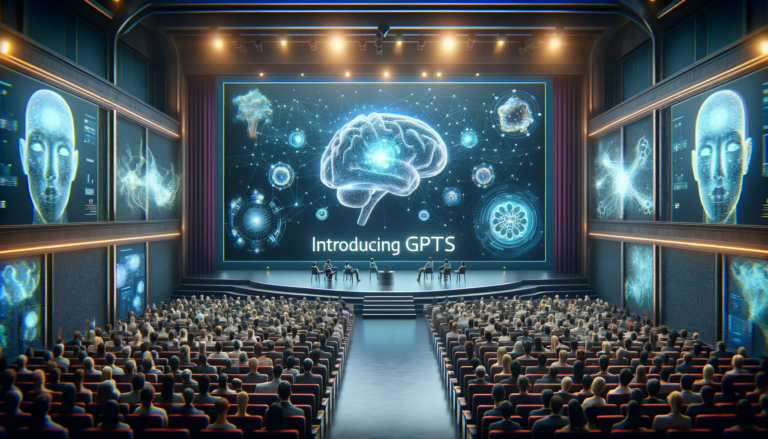
In the ever-evolving world of technology, where artificial intelligence (AI) plays a significant role, finding sustainable practices in AI development has become crucial. As we strive to harness the incredible potential of AI, it is important to prioritize environmentally friendly approaches. This article explores the concept of sustainable AI development, shedding light on the importance of incorporating eco-conscious practices into the creation and deployment of AI systems.
Sustainable Practices in AI Development
Artificial Intelligence (AI) has the potential to revolutionize industries and improve the lives of individuals worldwide. However, the rapid growth of AI technology has raised concerns about its environmental impact and ethical implications. To address these concerns, sustainable practices in AI development are paramount. By implementing efficient data collection, responsible data usage, energy-efficient algorithms, hardware optimization, lifecycle assessment, reducing bias and inequality, data privacy and security, transparent decision-making, and ethical governance, we can ensure the development of AI systems that are not only beneficial but also environmentally and ethically responsible.
Efficient Data Collection
Efficient data collection is crucial in sustainable AI development. Careful evaluation and prioritization of the data to be collected can help reduce unnecessary data acquisition and ensure that only relevant and essential information is gathered. By reducing data redundancy, where the same data is collected and stored multiple times, we can minimize storage requirements and, subsequently, the environmental impact of data centers. Additionally, employing data minimization techniques can limit the collection and storage of personally identifiable information, further protecting individual privacy while reducing resource consumption.
Responsible Data Usage
Responsible data usage is another essential aspect of sustainable AI development. Data anonymization techniques can be employed to remove personally identifiable information from datasets while retaining the useful information for training algorithms. Secure data storage practices, such as encryption and access controls, can safeguard data from unauthorized access and minimize the risk of data breaches. Compliant data sharing ensures that data is shared in a responsible and ethical manner, adhering to privacy regulations and obtaining necessary consent from individuals.
Energy-efficient Algorithms
Efficiency in algorithm design plays a significant role in reducing the energy consumption of AI systems. Assessing algorithm efficiency helps identify areas where improvements can be made to optimize computational processes and reduce energy requirements. Optimization for renewable energy sources involves designing algorithms that can adapt their computational intensity based on the availability of renewable energy, thereby promoting the use of sustainable energy in AI operations. Additionally, reducing compute-intensive models, which require substantial computational resources, can help minimize energy consumption and make AI systems more energy-efficient overall.
Hardware Optimization
Hardware optimization is crucial for sustainable AI development. Energy-efficient hardware design focuses on creating processors, memory systems, and other components that reduce energy consumption while maintaining high performance. Low-power computing technologies, such as low-power processors and power management techniques, can significantly decrease energy usage. Optimized network infrastructure minimizes data transfer distances and latency, reducing energy requirements and improving overall system efficiency.
Lifecycle Assessment
The environmental impact of AI goes beyond just data collection and algorithm design. Conducting lifecycle assessments of AI systems can provide valuable insights into their environmental footprint. Environmental impact analysis allows us to measure and evaluate the direct and indirect environmental effects of AI development processes. By incorporating eco-design principles during the development phase, such as using sustainable materials, reducing waste output, and designing for disassembly and recycling, the overall environmental impact of AI systems can be minimized. Embracing circular economy approaches, which focus on reducing, reusing, and recycling resources, can also contribute to a more sustainable AI industry.
Reducing Bias and Inequality
Addressing bias and inequality is crucial for building ethical and sustainable AI systems. Bias in training data can lead to discriminatory outcomes, perpetuating inequality and injustice. To combat this, efforts should be made to ensure diverse and inclusive training datasets that accurately represent the diversity of the intended users. Similarly, promoting diversity in AI teams can bring different perspectives and reduce the potential for bias during algorithm development. Moreover, equitable deployment and access to AI technologies can help bridge the digital divide and ensure that the benefits of AI are accessible to all, regardless of socio-economic status or geographical location.
Data Privacy and Security
Protecting data privacy and ensuring data security are fundamental in sustainable AI development. Privacy-by-design principles should be integrated into the development process, ensuring privacy safeguards are implemented from the outset. Secure data handling practices, including encryption, access controls, and data anonymization, can help protect user information from unauthorized access or misuse. Robust security measures are necessary to safeguard data integrity and prevent data breaches, fostering trust between users and AI systems.
Transparent Decision-making
Transparent decision-making is essential to foster trust and accountability in AI systems. Explainable AI systems provide clarity on how decisions are made, allowing users and stakeholders to understand the reasoning behind AI-generated outputs. Interpretable model outputs help users verify the accuracy and reliability of the AI system, enabling transparency in decision-making processes. Algorithmic audits, conducted by independent evaluators, can assess the fairness, accountability, and ethical implications of AI systems, ensuring that they adhere to societal standards and guidelines.
Ethical Governance
Ethical governance is crucial to ensure sustainable AI development. Establishing clear guidelines and ethical frameworks for AI research, development, and deployment promotes responsible and accountable practices. Ethical considerations must be integrated into every stage of the AI development lifecycle, from data collection to algorithm design and implementation. Continuous evaluation and monitoring of AI systems are essential to identify and address any ethical concerns that may arise during their operation. Collaboration with regulatory bodies, industry partners, and civil society organizations can contribute to the development of comprehensive ethical governance frameworks.
Collaboration and Knowledge-sharing
Collaboration and knowledge-sharing are key components of sustainable AI development. Open source AI initiatives facilitate the sharing of research, resources, and tools, fostering innovation and cooperation within the AI community. Industry-academia partnerships promote the exchange of knowledge and expertise, enabling the development of sustainable AI solutions that address real-world challenges. Global collaboration efforts, involving governments, organizations, and researchers from around the world, can drive the development of globally accepted standards, regulations, and best practices, ensuring that sustainable AI becomes a global priority.
In conclusion, sustainable practices in AI development are necessary to mitigate the environmental impact and address the ethical implications of this rapidly evolving technology. By implementing efficient data collection, responsible data usage, energy-efficient algorithms, hardware optimization, lifecycle assessment, reducing bias and inequality, data privacy and security, transparent decision-making, ethical governance, collaboration, and knowledge-sharing, AI can become a powerful force for positive change while minimizing its negative ecological and societal consequences. By striving for sustainable AI development, we can harness the potential of AI technology to benefit people and the planet alike.






